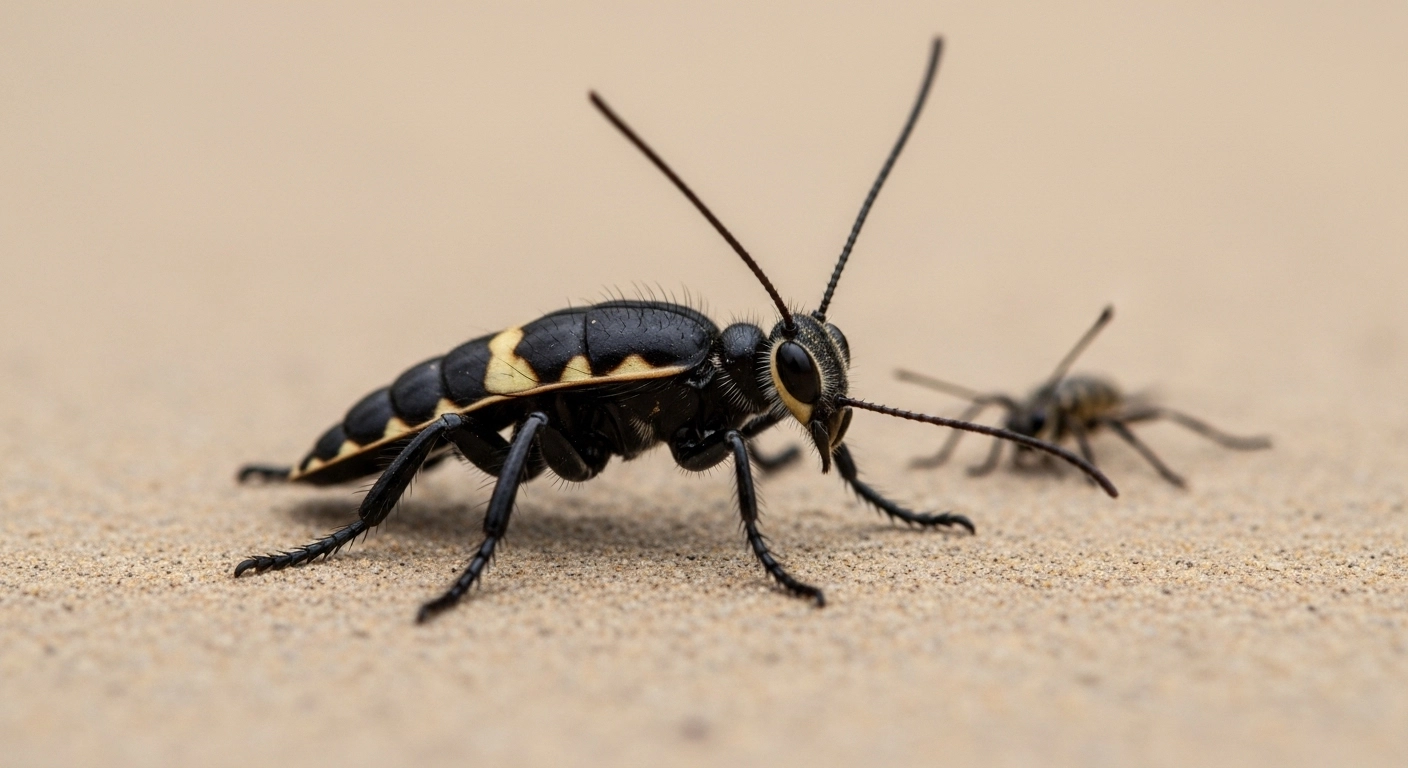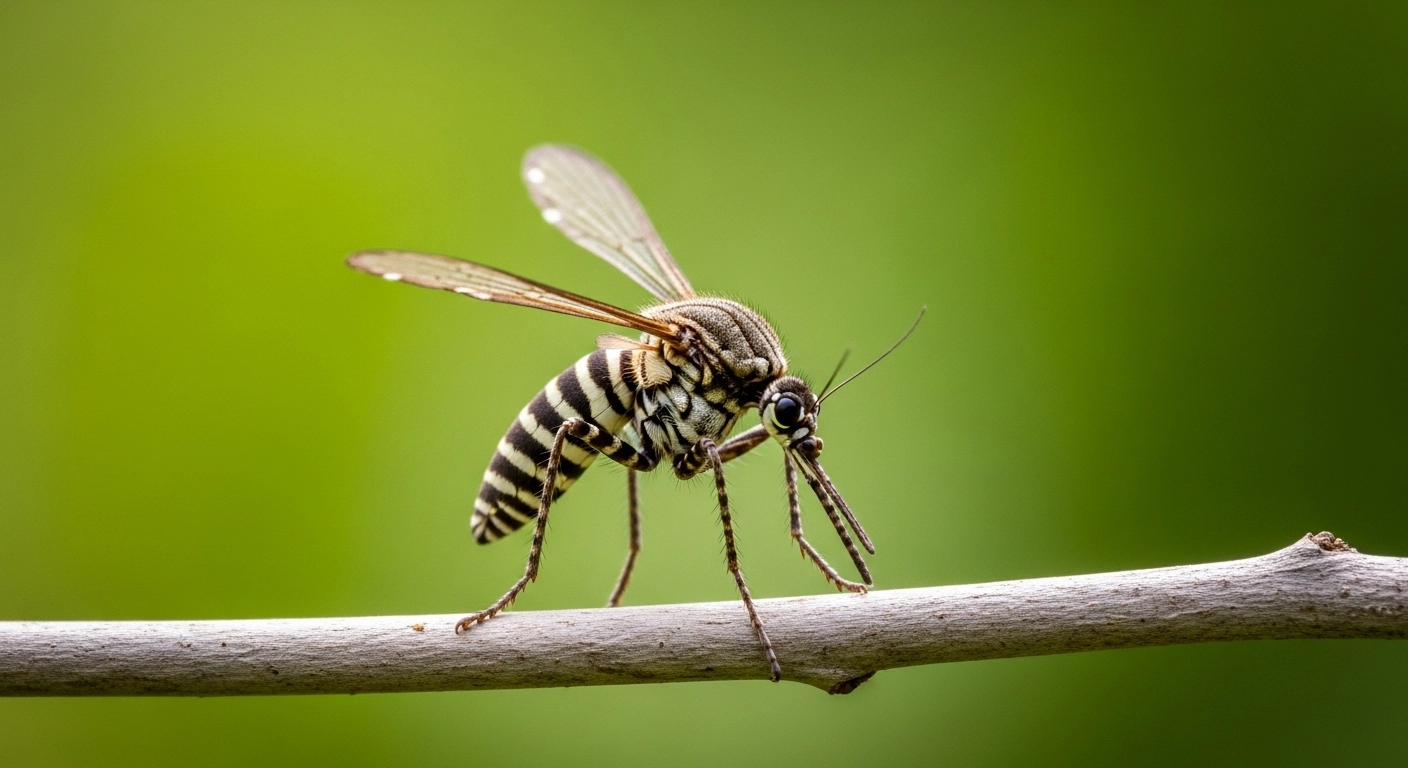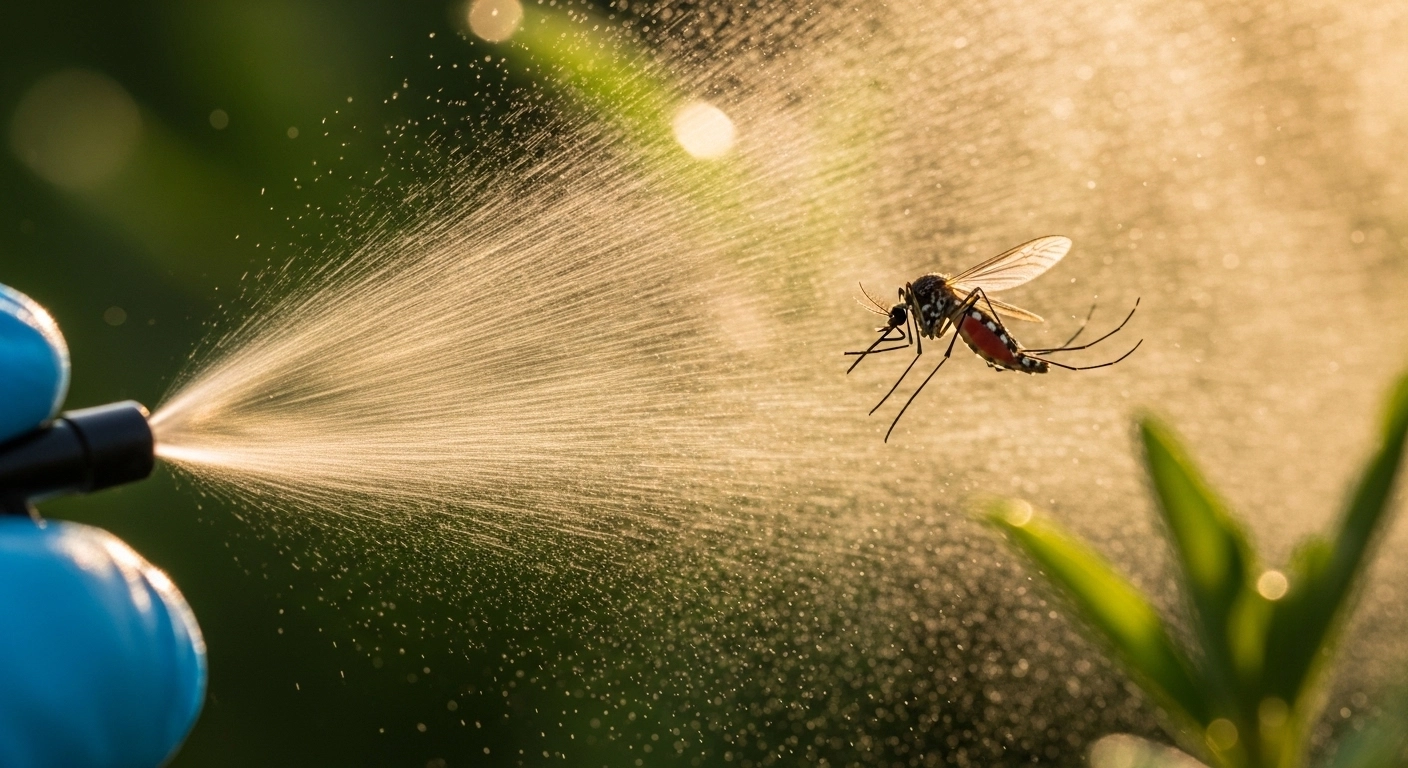Wasps are one of the most common and annoying pests that can ruin your outdoor activities and cause painful stings. However, wasps are also beneficial insects that help control other pests and pollinate plants. In this article, you will learn how to identify, prevent, and get rid of wasps in a safe and effective way.
Key Takeaways
| Topic | Summary |
|---|---|
| Why control wasps | Wasps can sting, cause allergic reactions, damage crops, and contaminate food. |
| How to identify wasps | Wasps have yellow and black stripes, narrow waists, and pointed stingers. They build nests from chewed wood pulp and live in colonies. |
| How to prevent wasps | Seal up cracks and holes, cover food and garbage, avoid wearing bright colors and perfume, and plant mint and other aromatic herbs. |
| How to get rid of wasps | Use a DIY trap with sugar water or vinegar, spray a commercial insecticide on the nest, dust the nest with boric acid or diatomaceous earth, or hire a professional pest controller. |
Why Control Wasps
Wasps are not only a nuisance, but also a potential threat to your health and safety. Here are some reasons why you should control wasps:
- Wasps can sting. Unlike bees, wasps can sting multiple times and do not die after stinging. Their stings are painful and can cause swelling, itching, redness, and infection. Some people may also have an allergic reaction to wasp stings, which can lead to anaphylaxis – a severe and life-threatening condition that requires immediate medical attention.
- Wasps can cause crop damage. Wasps are carnivorous insects that feed on other insects, such as caterpillars, aphids, flies, and spiders. While this can be beneficial for pest control, it can also be harmful for crops and gardens. Wasps can damage fruits, vegetables, flowers, and leaves by chewing or piercing them.
- Wasps can contaminate food. Wasps are attracted to sweet and sugary foods, such as fruits, jams, sodas, and cakes. They can land on your food and drink and transfer bacteria or parasites that can cause food poisoning or infection. They can also become aggressive and sting you if you try to swat them away.
How to Identify Wasps
Wasps belong to the order Hymenoptera, which includes bees, ants, and hornets. There are over 7,000 species of wasps in the UK, but the most common ones that you may encounter are the common wasp (Vespula vulgaris) and the German wasp (Vespula germanica). These are social wasps that live in large colonies headed by a queen.
You can identify wasps by their distinctive features:
- Yellow and black stripes. Wasps have yellow and black stripes on their abdomen that serve as a warning signal to predators. Some wasps may also have red or orange markings.
- Narrow waist. Wasps have a narrow waist that separates their thorax (where the wings and legs are attached) from their abdomen (where the stinger is located).
- Pointed stinger. Wasps have a pointed stinger at the end of their abdomen that they use for defense and hunting. The stinger is attached to a venom sac that injects venom into the victim.
- Nests. Wasps build nests from chewed wood pulp that they mix with saliva. The nests have a paper-like appearance and consist of hexagonal cells where the eggs and larvae are stored. The nests can vary in size and shape depending on the species and location. Some nests may be found in trees, bushes, walls, roofs, attics, or underground.
How to Prevent Wasps
The best way to avoid wasp problems is to prevent them from building nests near your home or yard. Here are some tips on how to prevent wasps:
- Seal up cracks and holes. Wasps can enter your home through cracks and holes in walls, windowsills, vents, or screens. You should seal up any openings with caulk, mesh, or foam.
- Cover food and garbage. Wasps are attracted to food sources, especially sweet ones. You should cover any food or drink that you leave outside or store in your kitchen. You should also keep your garbage cans closed and clean.
- Avoid wearing bright colors and perfume. Wasps may mistake you for a flower or a fruit if you wear bright colors or perfume. You should wear light or neutral colors and avoid using scented products when you go outside.
- Plant mint and other aromatic herbs. Mint is a natural repellent for wasps, as they do not like its smell. You can plant mint and other aromatic herbs, such as lavender, basil, or rosemary, around your home or yard to deter wasps.
How to Get Rid of Wasps
If you already have a wasp nest near your home or yard, you should get rid of it as soon as possible. However, you should be careful and avoid disturbing the nest or provoking the wasps. Here are some methods on how to get rid of wasps:
- Use a DIY trap. You can make a simple trap with a glass jar, sugar water, and vinegar. Fill the jar with sugar water and add a few drops of vinegar. The sugar will attract the wasps, while the vinegar will prevent bees from entering the trap. Make some holes in the lid of the jar and hang it near the nest or where you see wasp activity. The wasps will enter the jar and drown in the liquid.
- Spray a commercial insecticide. You can buy a commercial insecticide spray that is designed for wasp control. You should follow the instructions on the label and wear protective clothing and goggles. You should spray the insecticide directly on the nest at night or early morning, when the wasps are less active. You may need to repeat the treatment for several days until all the wasps are dead.
- Dust the nest with boric acid or diatomaceous earth. Boric acid and diatomaceous earth are natural substances that can kill wasps by dehydrating them or damaging their exoskeleton. You can use a duster or a plastic bottle to apply the powder on the nest or around the entrance. You should do this at night or early morning, when the wasps are less active. You may need to repeat the treatment for several days until all the wasps are dead.
- Hire a professional pest controller. If you are not comfortable or confident with dealing with wasps yourself, you can hire a professional pest controller who has the experience and equipment to safely and effectively remove the nest.
How to Treat Wasp Stings
If you or someone you know gets stung by a wasp, you should act quickly and follow these steps:
- Remove the stinger. If the stinger is still in the skin, you should remove it as soon as possible to prevent more venom from entering the wound. You can use your fingernail, a credit card, or a pair of tweezers to scrape or pull out the stinger. Do not squeeze or pinch the stinger, as this may inject more venom.
- Wash the wound. You should wash the wound with soap and water to clean it and prevent infection.
- Apply ice. You should apply ice or a cold compress to the wound to reduce swelling, pain, and inflammation. You can wrap ice in a cloth or use a frozen pack. Do not apply ice directly to the skin, as this may cause frostbite.
- Take painkillers. You can take over-the-counter painkillers, such as ibuprofen or paracetamol, to relieve pain and discomfort. Follow the dosage instructions on the label and do not exceed the recommended amount.
- Use antihistamines. You can use over-the-counter antihistamines, such as cetirizine or loratadine, to reduce itching and allergic reactions. Follow the dosage instructions on the label and do not exceed the recommended amount.
- Use creams or lotions. You can use creams or lotions that contain hydrocortisone, calamine, or aloe vera to soothe and heal the skin. Apply a thin layer of cream or lotion to the wound and gently rub it in.
When to Seek Medical Attention
Most wasp stings are mild and do not require medical attention. However, some people may have severe or life-threatening reactions to wasp stings, such as anaphylaxis. You should seek medical attention immediately if you or someone you know experiences any of these symptoms after a wasp sting:
- Difficulty breathing. You may have trouble breathing, wheezing, coughing, or choking due to swelling of the throat or airways.
- Low blood pressure. You may feel dizzy, faint, weak, or confused due to a drop in blood pressure.
- Rapid heartbeat. You may have a fast or irregular heartbeat due to increased adrenaline levels.
- Nausea and vomiting. You may feel sick and vomit due to an upset stomach.
- Swelling of the face, lips, tongue, or eyes. You may have swelling of these parts due to an allergic reaction.
- Hives or rash. You may have red, itchy, or raised bumps on your skin due to an allergic reaction.
- Loss of consciousness. You may lose consciousness due to shock or lack of oxygen.
If you have any of these symptoms, you should call 999 (or your local emergency number) and ask for an ambulance. You should also inform the operator that you have been stung by a wasp and that you may have anaphylaxis.
If you have a history of severe allergic reactions to wasp stings, you should carry an epinephrine auto-injector (such as EpiPen) with you at all times. This is a device that can inject a dose of epinephrine (also known as adrenaline) into your thigh muscle to counteract the effects of anaphylaxis. You should use your epinephrine auto-injector as soon as you feel any symptoms of anaphylaxis and follow the instructions on the label.
How to Avoid Wasp Stings
The best way to avoid wasp stings is to avoid contact with wasps in the first place. Here are some tips on how to avoid wasp stings:
- Stay away from wasp nests. If you see a wasp nest near your home or yard, do not approach it or try to remove it yourself. Contact a professional pest controller who can safely and effectively remove the nest for you.
- Do not swat at wasps. If you see a wasp flying around you, do not swat at it or wave your arms. This may provoke the wasp and make it more likely to sting you. Instead, stay calm and move away slowly.
- Wear protective clothing. If you are going to be in an area where there are many wasps, such as a picnic site or a fruit orchard, you should wear protective clothing that covers your skin. Wear long sleeves, pants, socks, shoes, gloves, and a hat. You can also wear a netted veil over your face if necessary.
- Avoid wearing bright colors and perfume. As mentioned before, wasps may mistake you for a flower or a fruit if you wear bright colors or perfume. You should wear light or neutral colors and avoid using scented products when you go outside.
Conclusion
Wasps are common and beneficial insects that help control other pests and pollinate plants. However, they can also be a nuisance and a danger to your health and safety. You should learn how to identify, prevent, and get rid of wasps in a safe and effective way. You should also know how to treat wasp stings and when to seek medical attention. By following these pest advice for controlling wasps, you can enjoy your outdoor activities without worrying about wasp problems.



